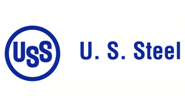Market Segment
August 16, 2023
Analysts Weigh in on Potential Sale of U.S. Steel
Written by Becca Moczygemba
U.S. Steel dropped a bombshell last week when it announced that it is up for sale. While a company buyout would be profitable for any buyer, there could be regulatory hurdles, according to industry analysts.
Recall the Pittsburgh-based steelmaker announced on Aug.13 that it had initiated a formal review process for strategic alternatives after receiving multiple unsolicited offers to buy the company.
The company has already received two publicly-announced offers: One for $7.3 billion in cash and stock from competitor Cleveland-Cliffs, which was rejected by U.S. Steel; and a second, all-cash offer of $7.8 billion from privately held firm Esmark.

“U. S. Steel’s Board and management team are committed to maximizing value for our stockholders, and to that end, we have commenced a comprehensive and thorough review of strategic alternatives,” said David B. Burritt, U. S. Steel’s president, CEO, and member of the board of directors, in a press release.
Steel industry analysts weighed in with their thoughts on the actual execution of a deal.
Timna Tanners, managing director of equity research at Wolfe Research, said a purchase by Cliffs would allow the Cleveland-based organization to grow. “The separate entities would otherwise see earnings shrink after abnormally strong 2021/22 steel prices,” she commented in a research note.
“If this merger concludes, I expect that Cliffs will continue to secure visibly higher profitability in this market and smooth out much of the cyclical peaks and valleys in the steel industry,” Josh Spoores, principal analyst at CRU, told SMU.
Additionally, “The proforma company would have the advantage of complementary capabilities in iron ore, DRI, scrap, and integrated/EAF steelmaking,” according to a research note from Phil Gibbs, senior equity research analyst at KeyBanc Capital Markets.
While the acquisition of U.S. Steel could be an advantageous move for Cliffs, regulations may be an obstacle.
Though Cliffs said it would get regulatory approval, Tanners thinks that dominance in the US automotive-quality, appliance, and tin sheet steel supply would elicit antitrust concerns.
Gibbs also said that regulatory issues would likely be problematic, but believes Cliffs has taken that into consideration.
“We believe the probability of this deal closing is low without meaningful concessions,” Gibbs noted.







